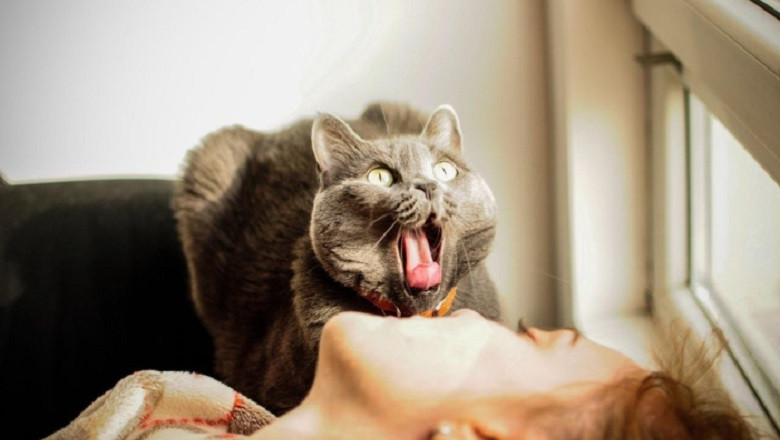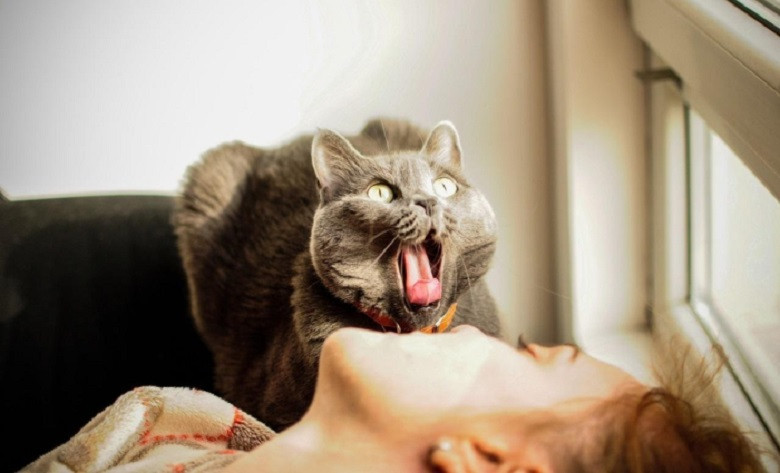
views
Why Does Your Cat Wake You Up at Night?
Anyone who shares their home with a cat has likely experienced the challenge of their pet turning a peaceful night’s sleep into a series of interruptions. Whether it’s persistent meowing, jumping on the bed, or simply pawing at your face, cats have a knack for waking us up at night. But why do they do this? Understanding your cat’s behavior requires exploring the mix of natural instincts, unmet needs, and environmental factors that contribute to these nocturnal disruptions.
1. Natural Instincts of Night Hunters
To understand why cats are so active at night, it’s important to remember that domestic cats are descendants of wild predators. Their ancestors were nocturnal hunters, typically active during the night when their prey—small rodents and other animals—were most vulnerable. While your cat no longer needs to hunt for food, the instinct to be active and alert during the night is deeply ingrained.
Cats are crepuscular animals, meaning they are most active at dawn and dusk, but this doesn't necessarily mean they sleep soundly through the night. Even though they’ve been domesticated, modern cats retain these genetic traits, often leading to nighttime activity. Whether it’s a hunt for a toy or simply running around the house, your cat's natural instincts are often triggered once the lights go out, making them feel the need to stay active.
2. Lack of Physical Activity
Many domestic cats spend their days in an apartment or a house, often without the opportunity to expend their energy in ways that their wild ancestors did. If a cat doesn’t have access to outdoor space or interactive play during the day, they might accumulate unspent energy, which can lead to increased activity at night. Cats are naturally curious and energetic creatures, and when the day winds down and the household becomes quiet, they may suddenly become energized and ready to play.
For some cats, nighttime becomes their designated “playtime,” as their owners settle in for the night. This burst of energy is often not something you can predict, and it can feel like an endless cycle of interruptions, especially if the cat is pouncing on your bed or meowing for attention.
3. Hunger and Anxiety Over Feeding
Another common reason cats wake their owners at night is hunger. Cats, like people, are creatures of habit, and they often become accustomed to a specific feeding schedule. If their feeding times are inconsistent or if they’re given dinner too early in the evening, they might feel the need to ask for food in the middle of the night.
Some cats also associate certain times with meals, and if the timing of their food isn’t right, they can become anxious. This can lead to persistent behavior like pawing at your face or meowing loudly, indicating that they expect food. A disrupted feeding schedule can easily turn into a restless night for both you and your cat.
4. Seeking Attention and Companionship
Cats are social animals, even though they are often seen as more independent than dogs. If a cat is left alone during the day, it may begin to feel lonely or neglected, particularly if it has become accustomed to companionship and interaction. By the time night falls, the cat may be seeking the attention and affection that it missed during the day.
Waking up a sleeping owner becomes a way to get the attention it craves. Whether your cat wants to be petted, played with, or simply to sit in your lap, the nighttime offers the quiet environment it seeks to bond with you. If your cat is meowing, pawing at you, or curling up beside you in the middle of the night, it’s often trying to satisfy its need for companionship.
5. Territorial Behavior
For cats, territory is everything. They are highly territorial creatures, and part of their instinctive behavior includes conducting nightly “patrols” of their environment. This involves checking the boundaries of their domain, marking their territory, and reacting to any potential changes or threats in the environment. Even though your home may seem like a safe and stable place, cats are still hardwired to be vigilant.
Your cat may wake you up to notify you of a perceived change or disturbance, such as a noise outside or a new scent in the air. Sometimes these territorial behaviors can lead to your cat waking you up in the middle of the night to make sure everything is as it should be, even if it’s something as simple as a new object in the house or a shift in routine.
6. Age-Related Changes
As cats age, their sleep patterns can change. Kittens and young cats, filled with boundless energy, are naturally more active during the night. Young cats often have more energy than they know what to do with, which can lead them to pounce, play, and disturb their owners while they sleep.
On the other hand, older cats may also wake you up at night, but for different reasons. As cats age, they may experience changes in their sleep and wakefulness patterns, similar to how some elderly people experience disrupted sleep. Conditions like arthritis, hearing loss, or even cognitive dysfunction can cause older cats to be more restless at night. Sometimes, they may become confused or disoriented and wake you up because they are uncomfortable or need assistance.
7. Sensitivity to External Stimuli
Cats have incredibly sensitive senses, particularly their hearing and smell. Noises that are barely noticeable to humans, such as the sound of a passing car, rustling in the bushes outside, or even the movement of other animals, can be highly noticeable to your cat. They may interpret these sounds as potential threats or areas of interest, prompting them to become alert and even wake you up in response.
In some cases, the cat might be reacting to stimuli that are outside its immediate environment, like a neighbor’s cat, or it may be warning you about something it perceives as a threat. Their heightened senses make them naturally suspicious of anything out of the ordinary, which can result in nighttime disruptions.
How to Solve the Problem
Understanding why your cat is waking you up at night can help you manage the situation. Some solutions include providing more physical and mental stimulation during the day, ensuring your cat has a consistent feeding schedule, and creating a peaceful and safe nighttime environment. Interactive play before bedtime can help tire your cat out, while a late-night snack may keep it content through the night.
In some cases, adjusting your cat’s nighttime routine or providing a comfortable resting place for it can also help. If your cat’s behavior is linked to anxiety, increased attention during the day or the use of calming products might be necessary. Each cat is unique, so finding a balance that works for both you and your pet is key to ensuring peaceful nights for everyone.
In conclusion, while your cat’s nighttime antics can be frustrating, they are often driven by deep-seated instincts and needs. Understanding these behaviors can help you respond in ways that promote a good night’s sleep for both you and your feline friend.












Comments
0 comment